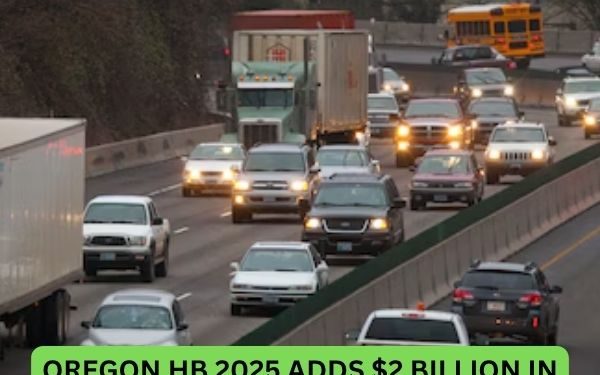This week, Oregon Democrats introduced a new transportation package under House Bill 2025, aiming to boost funding for transit agencies across the state. The proposal includes a series of controversial taxes intended to raise an additional $2 billion through new levies and increases.
HB 2025 Targets Over $2 Billion in Annual Revenue
This Article Includes
During a Joint Transportation Committee meeting, Democrats unveiled the funding package, which the Legislative Revenue Office estimates could generate more than $2 billion annually.
HB 2025 proposes several tax changes to support transportation, including:
-
Gas Tax: A 15-cent increase, raising the rate from $0.40 to $0.55 per gallon, with potential future hikes linked to inflation.
-
Vehicle Registration Fees: Significant increases in various vehicle registration and licensing costs.
-
Vehicle Sales Tax: A new 2% tax on new vehicle purchases and 1% on used vehicles priced over $10,000.
ODOT Set to Receive Major Investment
A large portion of the revenue would go to the Oregon Department of Transportation (ODOT) for improving safety, road conditions, and reducing wildlife collisions. Key ODOT programs include:
-
Orphan Highway Updates: Upgrading older sections of highways.
-
Safer Streets: Enhancing safety near schools.
-
Wildlife Collision Mitigation: Addressing animal-vehicle crash risks.
-
Great Streets Program: $125 million per year for improving street design in urban areas.
EV Users May Face Per-Mile Charges
HB 2025 offers an annual fee as an alternative to the per-mile road usage charge, but it also includes a provision that could eventually require many electric vehicle owners to pay per mile driven.
This part of the plan could bring in over $170 million annually, although it would cost the state about $15 million to launch and $4 million each year to operate.
Support and Opposition
Democrats argue the bill is necessary to maintain infrastructure across Oregon, while Republicans believe it places a financial burden on residents.
The Oregon Transit Association said that passing HB 2025 is vital to preserving the public transit services that many Oregonians rely on.
Public hearings on the bill wrapped up this week. HB 2025 could move out of committee next week and proceed to floor votes in the House and Senate.











